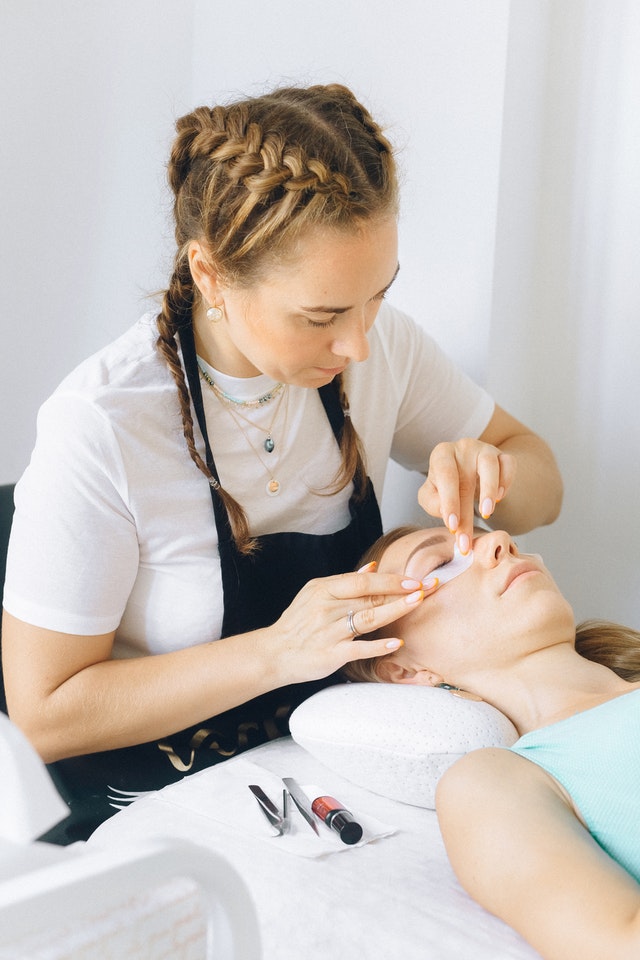When it comes to skincare, there are a few conditions that necessarily require a little more than treatment, love, and care (we’re looking at problems like, hyperpigmentation, sun spots, age spots, acne scars, melasma).
The best skin care products are a first defense i.e, exfoliant and a brightening cream and Vitamin C-rich serum. Even with continuous usage of high-efficacy treatments, a particularly resistant area may want to hang around. When this happens, some people turn to alternative treatments like arbutin.
Arbutin has been utilized in traditional Japanese treatments as a skin-lightening ingredient and has since been deemed an effective alternative to Hydroquinone to achieve the same purpose for use in the West. Although it’s effective in improving dark spots on your skin, there has been some controversy about its negative effects.
Is arbutin safe, and does it pose any risk? While it is possible to have adverse effects there’s no conclusive scientific evidence to settle the issue regarding whether or not arbutin can harm humans.

What is the source of Arbutin?
Arbutin, also known as Alpha-Arbutin, is found naturally in a variety of plant species. Bearberry and mulberry have the highest known concentrations. Bearberry has been used as a traditional medicine for centuries in Europe and North America. Bearberry was one of the few known naturally occurring anti-microbial medicines before the discovery of modern antibiotics.
The presence of Arbutin contributes to antimicrobial activity. Bearberry has traditionally been treated for urinary tract infections. Chemical synthesis or an enzyme-catalyzed process can be used to create synthetic forms of arbutin.
What Is Arbutin?
Arbutin is found in skin-lightening creams, serums, cleansers, and skin moisturizers. Arbutin is a topical skin treatment for reducing dark spots and pigmentation. It is used with other acne products; it can help dramatically improve skin problems.
Additionally, arbutin may aid in preventing future freckles and hyperpigmentation. While arbutin is effective at reducing dark spots and pigmentation, the results aren’t immediate. It may take a matter of months before results are noticeable to the naked eye. We have to understand that the treatment is working at the cellular level, so the effects take time to realize.
Since the 1990s, researchers have been investigating Arbutin’s ability to inhibit tyrosinase in skin cells. There are no controlled trials on the treatment of hyperpigmentation. Several studies, however, have shown that arbutin is less effective for hyperpigmentation than kojic acid. Deoxyarbutin is a topical derivative that has been synthesized. According to research, it has a greater overall improvement in skin lightening, and health profile comparable to that of hydroquinone.
Benefits of Arbutin for Skin
1. Arbutin has sun protection properties because it inhibits the production of tyrosinase, which causes skin darkening after sun exposure.
2. Since arbutin’s active ingredient release is slow, this could have less irritation than other agents for skin lightening and is suitable for people with sensitive skin.
3. Because arbutin inhibits tyrosinase, an enzyme that aids in melanin production, it can help prevent or fade dark spots, resulting in a more even complexion.
4. Arbutin, like its ability to fade dark spots, is also effective at fading those red-purple acne scars that remain long after a pimple has healed.
5. It is less risky than hydroquinone. Arbutin inhibits the enzymes that stimulate pigment-producing cells, whereas hydroquinone kills the cells that produce pigmentation and melanin.
Side Effects of Arbutin
You may have some serious misgivings about Arbutin; it’s even banned in Australia, and they’ve reversed their decision with usage guidelines.
However, it is recognized by FDA there are no research reports or evidence from clinical studies that suggest there’s any risk to the use of Arbutin. Something this potent doesn’t come without certain effects, surrounding areas around the treated areas being one of them. Arbutin reduces visible dark spots as well as dark pigmentation.
But the skin around the affected area can also be lightened. So the intended spot may be lightened, but the surrounding skin will also lighten compared to normal skin, and the area will appear like a light de-pigmented around the spot being treated.
Arbutin converts to hydroquinone in alkaline conditions, making it potentially hazardous in some situations. Arbutin does not hydrolyze into hydroquinone because the skin does not have an alkaline environment.
How to Use It
Arbutin tends to be gentle compared to any other biological compounds on the market; it can be used in combination with other skin lightening products, like chemical peels, cleansers, and retinol.
If you look up your preferred e-commerce site or your preferred brand’s website, you’ll be amazed to discover that arbutin is found in many of your current skincare products. Most commonly, arbutin is found in serums for skincare, and it’s also an essential ingredient in overnight masks as well as creams for the skin.
Skincare experts suggest that it’s best to mix arbutin with other skin brightening ingredients such as vitamin C, Retinoid, Alpha Hydroxy Acid, Butylated hydroxyanisole but always do some patch test when you try arbutin with other ingredients.
Conclusion:
We recommend Alpha Arbutin For Skin to give a boost of skin lightening. This serum contains key ingredients alpha-arbutin, beta arbutin, grapeseed extract to brighten the skin, makes the skin softer and more elastic, reduce acne scars and lock in moisture in the skin ingredients including arbutin grapeseed extract.



